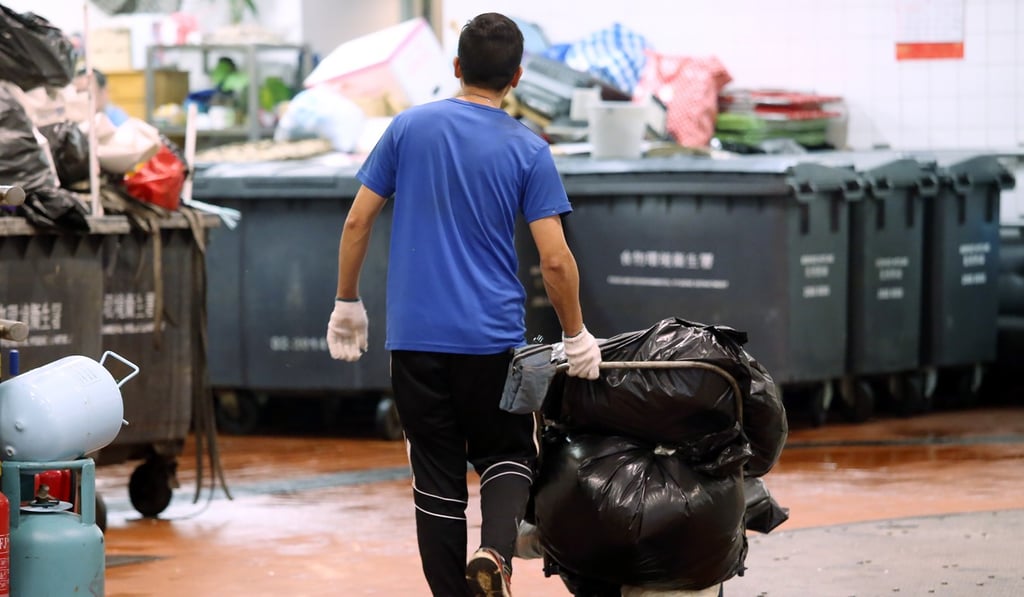Environmental group warns of ‘dark period’ as Hong Kong waste hits highest level since 1991
- Hongkongers sent an average of 1.53kg of municipal solid waste, which includes domestic, commercial and industrial debris, to landfills every day last year
- City sent a total of 5.87 million tonnes of solid waste to local landfills in 2018, up from 5.66 million tonnes in 2017

Hong Kong’s rubbish disposal rate per person has hit the highest level since records started in 1991, with a local environmental group warning of “dark times” if the government fails to implement a stalled waste-charging scheme.
Each Hongkonger sent an average of 1.53kg (3.37 pounds) of municipal solid waste, which includes domestic, commercial and industrial debris, to landfills every day last year, according to figures released on Monday by the Environmental Protection Department. The city sent a total of 5.87 million tonnes of solid waste to local landfills in 2018, up from 5.66 million tonnes in 2017.
The increase was attributed in part to Typhoon Mangkhut, which generated large amounts of unexpected waste. Even accounting for the typhoon, however, the city still generated an average of 1.5kg of waste per person, up from 1.45kg in 2017.
“The increase in waste is very worrying and the government has to take the lead by speeding up the passing of the proposed waste-charging scheme,” said Edwin Lau Che-feng, executive director of local environment group The Green Earth.
The bill, which would require a fee for the collection of municipal waste, was introduced in November. Progress on the bill was stalled when committee meetings were cancelled during the months of Hong Kong’s anti-government protests. Although Legislative Council meetings have resumed, no date has been set to discuss implementation of the waste plan.

Hahn Chu Hon-keong, the director of environmental advocacy for The Green Earth, said there would still need to be a transition period of at least three years, even if the charging plan was passed by the end of this year.